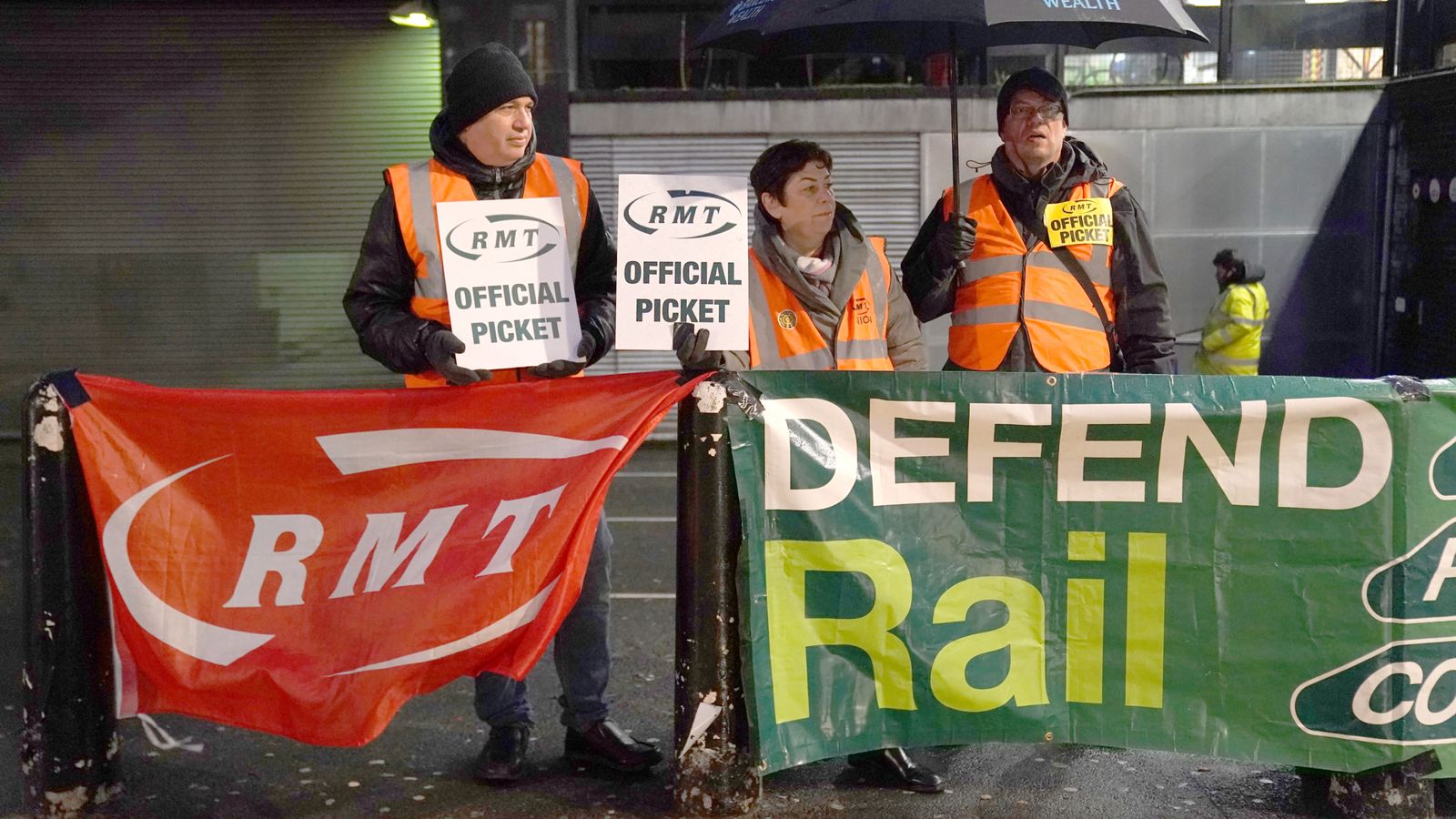RMT union members at Network Rail have voted to accept a revised pay offer aimed at resolving a long-running dispute over jobs, pay and conditions.
In a turnout of nearly 90%, members voted by 76% to 24% in favour, signalling an end to the bitter row, which led to a series of strikes in recent months.
The new offer is for Network Rail staff – including signallers and track maintenance workers. Network Rail owns, operates, maintains and develops Britain’s railway infrastructure.
The agreement won’t mean a total end to rail strikes because staff working for train companies are part of separate disputes.
It amounts to a pay rise of up to 14.4% for the lowest paid and 9.2% for the highest paid.
It also equates to a total uplift in basic earnings between 15.2% for the lowest-paid grades, to 10.3% for the highest-paid grades.
The majority – 55% of RMT members in Network Rail – earn less than £35,000, the union said, so most union members will be entitled to the 15.2% uplift over two years.
Read more:
Who is going on strike in 2023 and when?
The RMT national executive did not issue a recommendation on whether members should accept or reject the offer – but did suspend strikes while the ballot was held.
Other components of the deal include 75% off leisure travel – a long-held demand of Network Rail members – and a no compulsory redundancy agreement until January 2025.
The referendum of RMT union members started on 9 March and ended at midday today.
The last time the RMT put a Network Rail offer to members it recommended rejecting it – and members did so, with 64% saying no in December 2022, and just 36% voting to accept the offer as it stood then.
RMT members who work for train companies – including guards – are set to continue industrial action.
Passengers will still face disruption from walkouts scheduled for 30 March and 1 April as there is still no deal yet with the 14 train operating companies represented by the Rail Delivery Group.
RMT general secretary Mick Lynch said: “Strike action and the inspiring solidarity and determination of members has secured new money and a new offer which has been clearly accepted by our members and that dispute is now over.”
He said the dispute with the train operating companies remains “firmly on” and recent strikes had shown members’ “determination to secure a better deal”.
“If the government now allows the train companies to make the right offer, we can then put that to our members,” he said.
Until then, the planned walkouts would take place.
“The ball is in the government’s court,” he added.






















